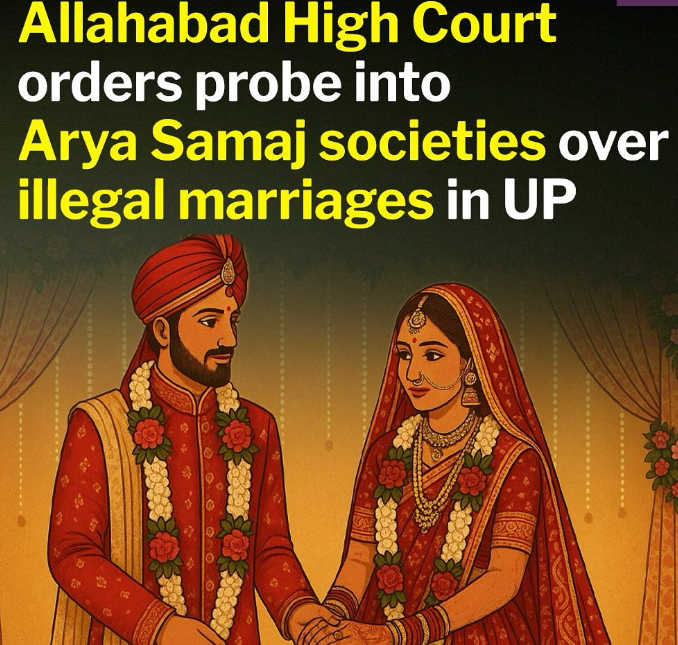PREVIOUS
Arya Samaj marriages
August 8 , 2025
17 hrs 0 min
25
0
- The Allahabad High Court last week directed the Uttar Pradesh government to investigate about unlawful Arya Samaj marriages.
- The Arya Samaj was formally established by Swami Dayanand Saraswati in 1875 as a Hindu revivalist movement.
- The Arya Samaj has made the attempts to convert persons from other faiths or ideologies to its version of Vedic, monotheistic Hinduism through a process it called “shuddhi” (purification).
- Arya Samaj weddings are favoured by couples seeking quick marriages, especially those from different castes or faiths.
- In 1937, the Arya Marriage Validation Act was passed to “remove doubts” and to recognise the validity of Arya Samaj marriages.
- These weddings take place as per a specific set of Hindu rituals, but only require the bride and groom to be of marriageable age and declare themselves to be Arya Samajis — regardless of their caste or religion.
- This process is faster and simpler than the Special Marriage Act, 1954, which mandates a 30-day public notice and more formal procedures.
- In Uttar Pradesh, Section 6 of the UP Prohibition of Unlawful Conversion of Religion Act, 2021 renders void any marriage that is preceded by an unlawful or procedurally non-compliant religious conversion.
- It requires pre- and post-conversion declarations and places the burden of proof on the accused to show voluntary consent.
- Arya Samaj shuddhi rituals often do not meet these legal standards, creating conflicts between Arya Samaj marriages and state laws.

Leave a Reply
Your Comment is awaiting moderation.


